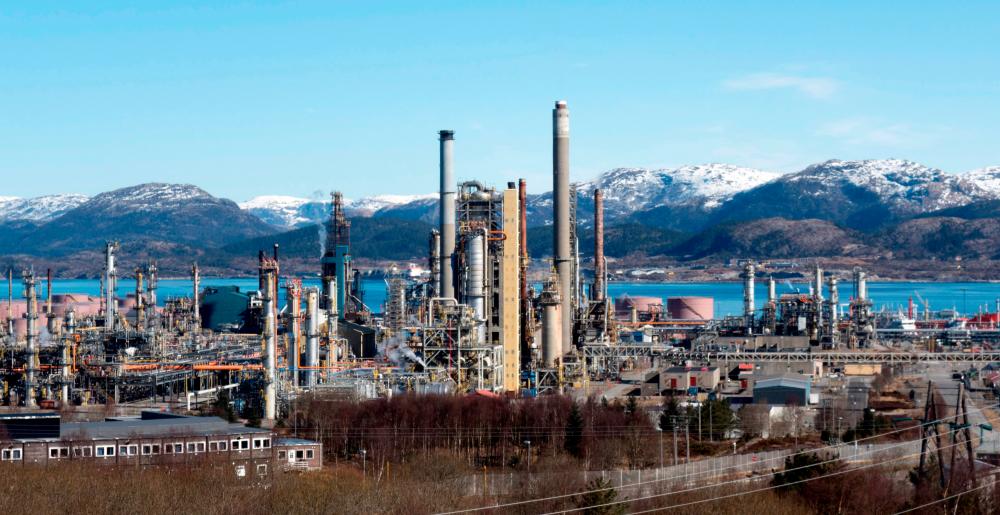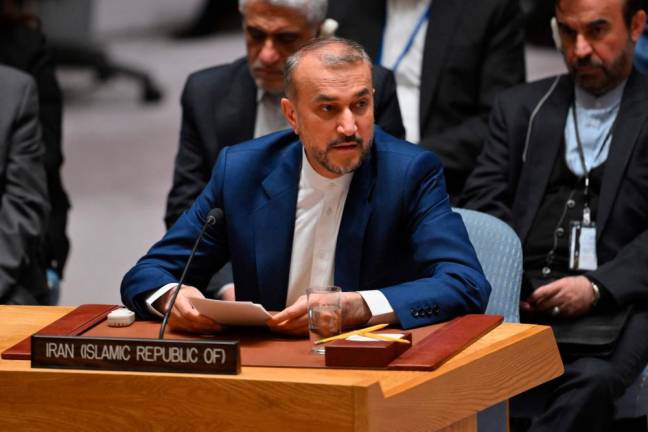LONDON: Oil rose yesterday as supply concerns driven by lower Opec output, unrest in Libya and sanctions against Russia outweighed fears of a demand-sapping global recession.
Eurozone inflation hit yet another record high in June, strengthening the case for rapid European Central Bank rate increases, while US consumer sentiment hit a record low.
Brent crude rose US$2.26, or 2%, to US$113.89 (RM502.59) a barrel by 1648 GMT after falling more than US$1 in early trade. US West Texas Intermediate (WTI) crude rose US$2.20, or 2%, to US$110.63 (RM488.21), in thin volume during the US Independence Day holiday.
The Organization of the Petroleum Exporting Countries (Opec) missed a target to boost output in June, a Reuters survey found.
In Opec member Libya, authorities declared force majeure at Es Sidr and Ras Lanuf ports as well as the El Feel oilfield on Thursday, saying oil output was down by 865,000 barrels per day (bpd).
Adding to potential supply woes, Norwegian offshore workers began a strike that will reduce oil and gas output, the union leading the industrial action told Reuters.
The strike, in which workers are demanding wage increases to compensate for rising inflation, comes amid high oil and gas prices, with supplies of natural gas to Europe especially tight after Russian export cutbacks.
“The strike has begun,” Audun Ingvartsen, the leader of the Lederne trade union said in an interview.
The Norwegian government has said it was following the conflict “closely”. It can intervene to stop a strike if there are exceptional circumstances.
Today, oil and gas output will be reduced by 89,000 barrels of oil equivalent per day (boepd), of which gas output makes up 27,500 boepd, Equinor has said.
Tomorrow, the strike will deepen the cut to the country’s gas output to a total of 292,000 boepd, or 13% of output, NOG said on Sunday.
Oil output from tomorrow will be cut by 130,000 barrels per day, the lobby had said, corresponding to around 6.5% of Norway's production, according to a Reuters calculation.
A further planned escalation by Saturday could see close to a quarter of Norway's gas output shut, as well as around 15% of its oil production, according to a Reuters calculation.
It is ultimately the operator's – Equinor's – decision to shut output. Equinor was not immediately available to comment on the last announced escalation.
“This backdrop of mounting supply outages is colliding with a possible shortage in spare production capacity among Middle Eastern oil producers,” said Stephen Brennock of oil broker PVM, referring to the limited ability of producers to pump more oil.
“And without new oil production hitting markets soon, prices will be forced higher.”
British Prime Minister Boris Johnson on Monday called on the Opec+ producer group to produce more oil to tackle a cost-of-living crisis.
In another development, Ecuador's oil output has recovered by about 90% since a deal between the government and demonstrators ended nationwide protests late last week, the ministry of mines and energy said yesterday.
Last Thursday, the government of President Guillermo Lasso and indigenous leaders signed a pact to end the crisis. At the time, oil output was around 262,000 barrels per day. It has since rebounded to 461,637 bpd, the ministry of mines and energy said in a statement. – Reuters













